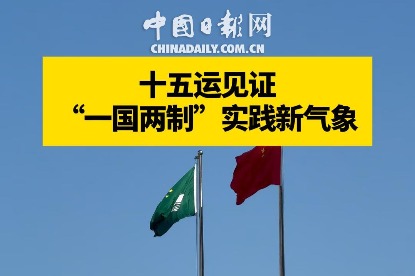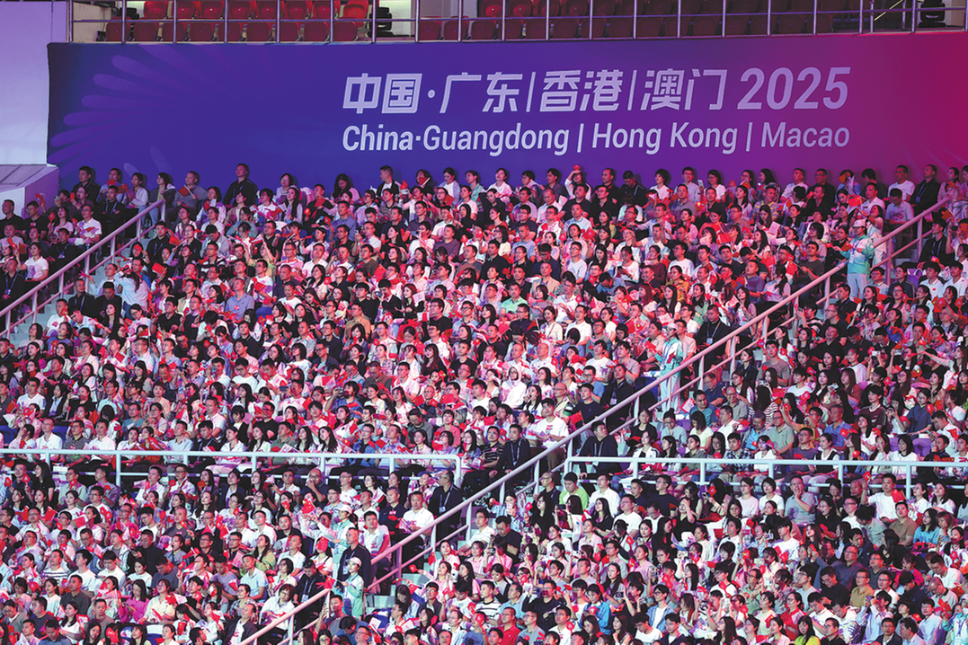China, EU can jointly fight graft

Combating corruption remains an essential aspect of statecraft and state policy across the world. The result of the fights against corruption has been mixed — different in different countries, administrative systems and international networks. What is the experience of the European Union in combating corruption and how could China's experience in this specific field be of use to the EU member states and the global community as a whole?
With the 20th Communist Party of China Central Commission for Discipline Inspection scheduled to hold its fourth plenary session from Jan 6 to Jan 8, we can expect the fight against corruption and international cooperation in this area to be thoroughly discussed.
The EU authorities have been organizing a series of workshops to share their experience of the fight against corruption since 2015, with the participants focusing on specialized issues and suggesting initiatives to be taken in the future.
The EU, of late, has intensified its efforts in this regard. In May 2023, the European Commission presented an anti-corruption package, which includes a proposal for a directive on combating corruption. This seminal text accompanied by a comprehensive package of initiatives cites ongoing actions of the EU bureaucratic mechanism to combat corruption and offer guidelines for future anti-corruption measures.
In June 2024, the Council of the EU agreed its position on an EU law that sets minimum standards for the definition and sanctioning of corruption offences, preventive measures and rules for more effective investigation and prosecution.
The anti-corruption framework of the EU is actually based on Articles 82 and 83 of the Treaty on the Functioning of the European Union and its ultimate goal is to unify and modernize the often-fragmented EU legislative framework on the fight against corruption. The directive introduces a series of measures to prevent and combat corruption within the bloc while setting new minimum standards for defining corruption offences.
Since corruption by itself entails a cross-border dimension in the era of a globalized economy and multiple transactions, cooperation between major international actors, such as China and the EU, can foster international security and stability and promote better understanding.
China's experience in the fight against corruption offers useful ideas for countries participating in transnational cooperation networks such as Belt and Road projects or the China-Central and Eastern European Countries cooperation platform. The Belt and Road Initiative's goal is to unite the expansive economic landscape of Eurasia, bringing together more than 63 percent of the world's population and 30 percent of the total global output.
If the Belt and Road countries combine their efforts to fight corruption by sharing their expertise and best practices, they can help maintain regional and transcontinental stability and economic prosperity.
An important aspect of China's soft power policy would be an emphasis on its anti-corruption policies and promotion of meritocracy throughout the ranks of the administrative mechanism. The United Nations Convention Against Corruption provides useful ideas pertaining to global cooperation and international law enforcement and judicial cooperation.
We should also remember the emphasis laid by ancient Greek philosophers on the following issues: a just state, moral values, individual responsibility and collective perceptions. These notions are fully developed in such seminal ancient Greek texts, as the Platonic dialogues.
In the same spirit, China has been putting emphasis on best administrative practices for centuries, as part of its special cultural values. By focusing on the notions of justice and culture of integrity and moral responsibility, China can coordinate with the EU, especially Greece (my motherland), in the fight against corruption.
How can cooperation between China and the EU materialize? Perhaps by establishing a China-EU joint platform to share their experiences in the fight against corruption, and take preventive and punitive measures to deter potential offenders.
The joint platform could organize workshops, seminars and periodic conferences with the participation of administrative personnel, experts and scholars. The creation of a transcontinental network linking the two most important centers of Eurasia — the EU and China — would create a dynamic nexus of cooperation and idea-sharing, and help build a more efficient environment for fighting corruption, while promoting regional stability, mutual understanding and mutual respect.
The views don't necessarily represent those of China Daily.

Today's Top News
- China warns Japan against interference
- Nation's euro bond sale shows investors' confidence
- No soft landing for Tokyo's hard line
- Commerce minister urges US to increase areas of cooperation
- Strong demand for China's sovereign bonds signals global confidence
- Ministry urges Japan to 'maintain self-respect'































